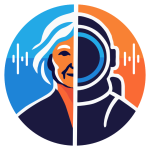OUR RESEARCH FOCUS

Instrumentation
We engineer and apply instrumentation solutions tailored for efficient and accurate signal collection.
Processing
We transform raw data into meaningful information through systematic acquisition and processing.
Decision Making
By identifying patterns in data, we provide valuable insights to support informed decision-making.
Our group is focused in the area of biosignals. The main topics of our research are instrumentation, signal processing, and decision making applied to the medical field.
As for the area of instrumentation we use and fabricate tools for acquiring biological signals and we measure these biological systems we process them in order to find meaningful information about the person’s condition, state, and/or development. As we collect this data and use intelligent algorithms to detect patterns, we produce mechanisms that help in the decision on the action to be made in the face of the events that the acquired data is present.
Based on on this research, we deliver creative solutions to be applied in the health environment with the goal of improving people’s everyday lives.
TEAM
RESEARCHERS
PUBLICATIONS
PROJECTS
Ongoing Projects

Microgravity and aging similarly affect physiological health, causing bone and muscle mass reductions akin to
osteoporosis and sarcopenia. Traditional countermeasures show limited effectiveness, failing in maintaining fast-twitch muscle’s functionality. ASTROPOWER introduces Acoustic Biofeedback of Muscle Activity for training,
targeting the prevention of ‘powerpenia’—a decline in muscle power. Additionally, it monitors muscle composition, acticity and movement to adapt training strategies accordingly , addressing muscular deficits caused by aging and microgravity.

PrevOccupAI+ aims to
develop a simplified system for occupational health management by increasing occupational health literacy and generating a more productive workforce. This initiative will empower individuals by providing them with the tools and knowledge to improve their well-being and empower organizations to implement effective health and safety policies. The resulting improvements in workplace health will lead to reduced absenteeism and presenteeism, lower healthcare costs, and a more motivated and efficient workforce, ultimately benefiting society as a whole.
AISym4Med aims at developing a platform that will provide healthcare data engineers, practitioners, and researchers access to a trustworthy dataset system augmented with controlled data synthesis for experimentation and modeling purposes. This platform will address data privacy and security by combining new anonymization techniques, attribute-based privacy measures, and trustworthy tracking systems.

KEEPCARING focuses on enhancing the wellbeing and resilience of healthcare workers in EU hospitals along the surgical pathway. The initiative aims to improve recruitment and retention by systematically researching the causes and indicators of job stress and developing innovative solutions to mitigate these issues. This is achieved through the collaborative creation of a comprehensive package that integrates non-digital, digital, and AI-supported tools, designed to prevent burnout among both current and aspiring healthcare professionals at the individual, team, and organizational levels.
Finished Projects

The PrevOccupAI aimed to identify occupational risks by combining the power of historical records of the global population and the precision data of personalized occupational exposure records. The combination was achieved through advanced machine learning and AI techniques. The project was carried out by an interdisciplinary team of experts in biomedical data acquisition, advanced data processing, AI algorithms, epidemiology, and clinical validation.

The project aimed to approach the Industry 4.0 workplace holistically, but from the point of view of the workers, gathering and crossing quantitative and qualitative data, building a richer picture of the workers’ well-being and enabling better predictive models. We continuously validated our solutions and built large datasets through continuous fieldwork, ranging from short contact sessions during technical development to long-term trials enabling impact assessment.
COLLABORATIONS



























